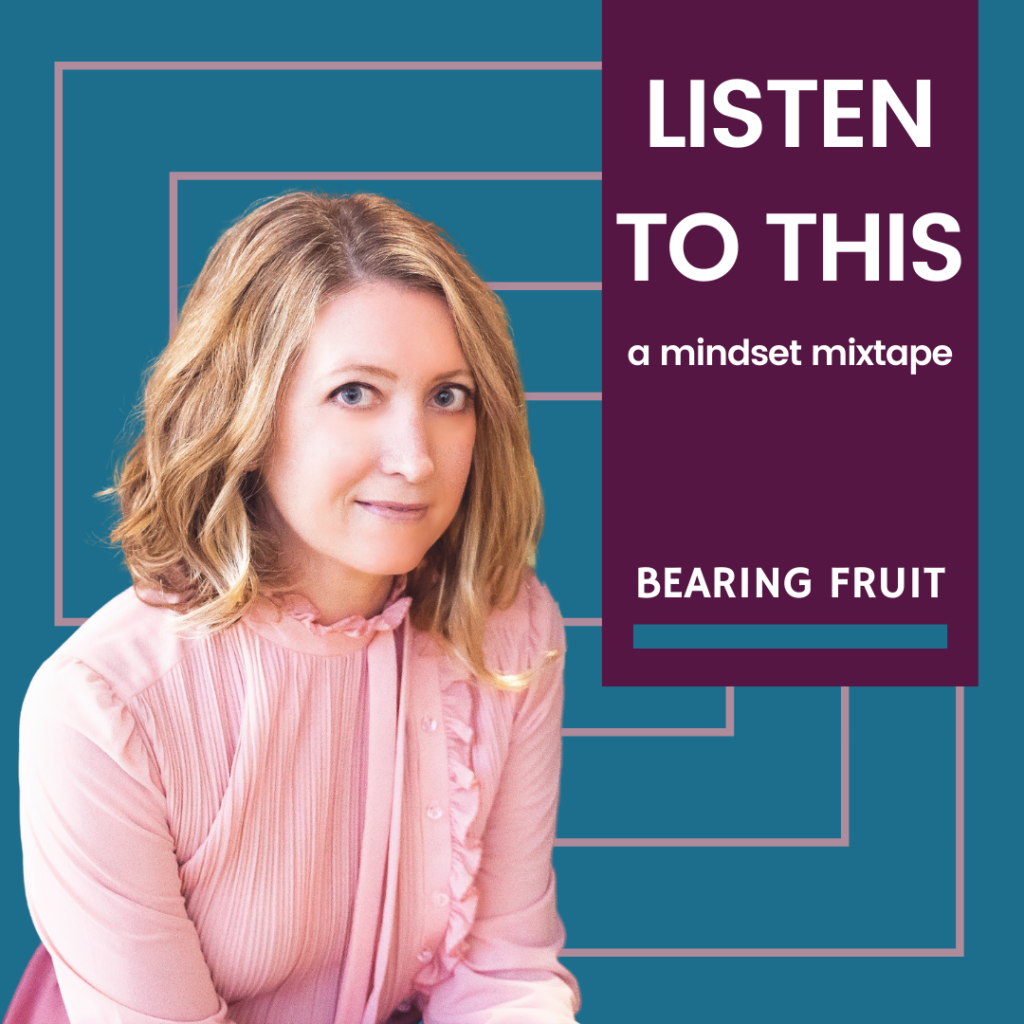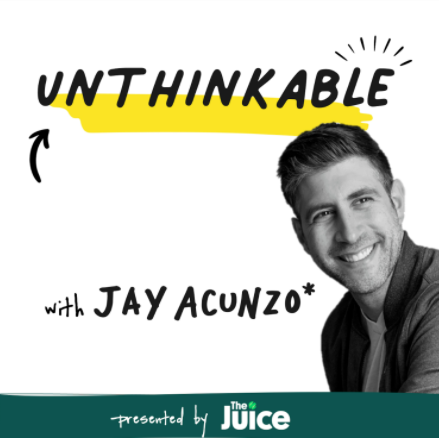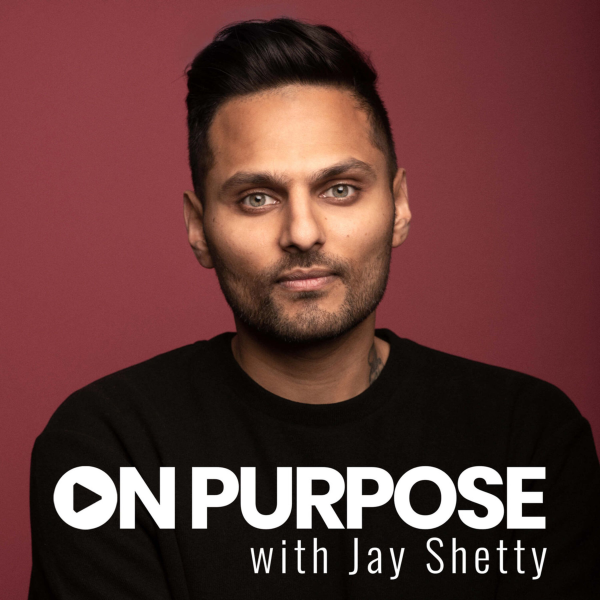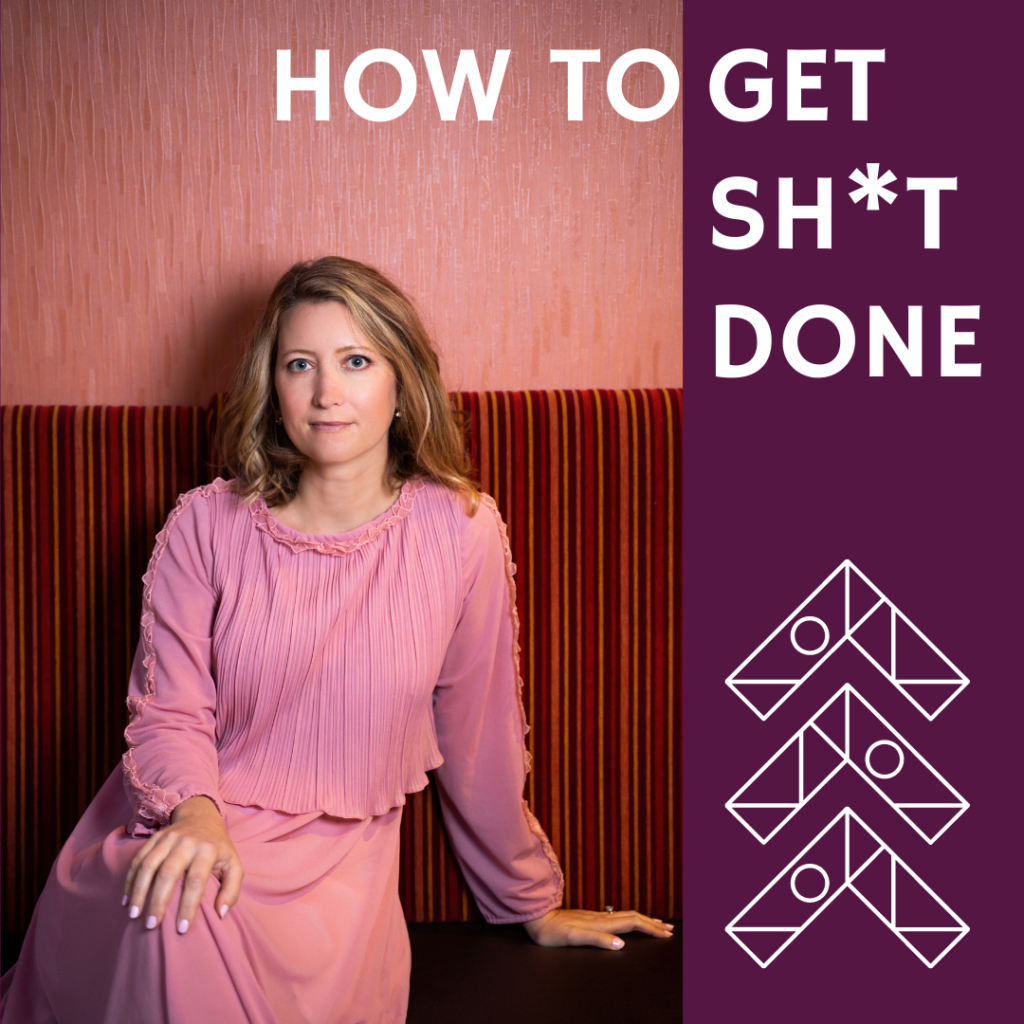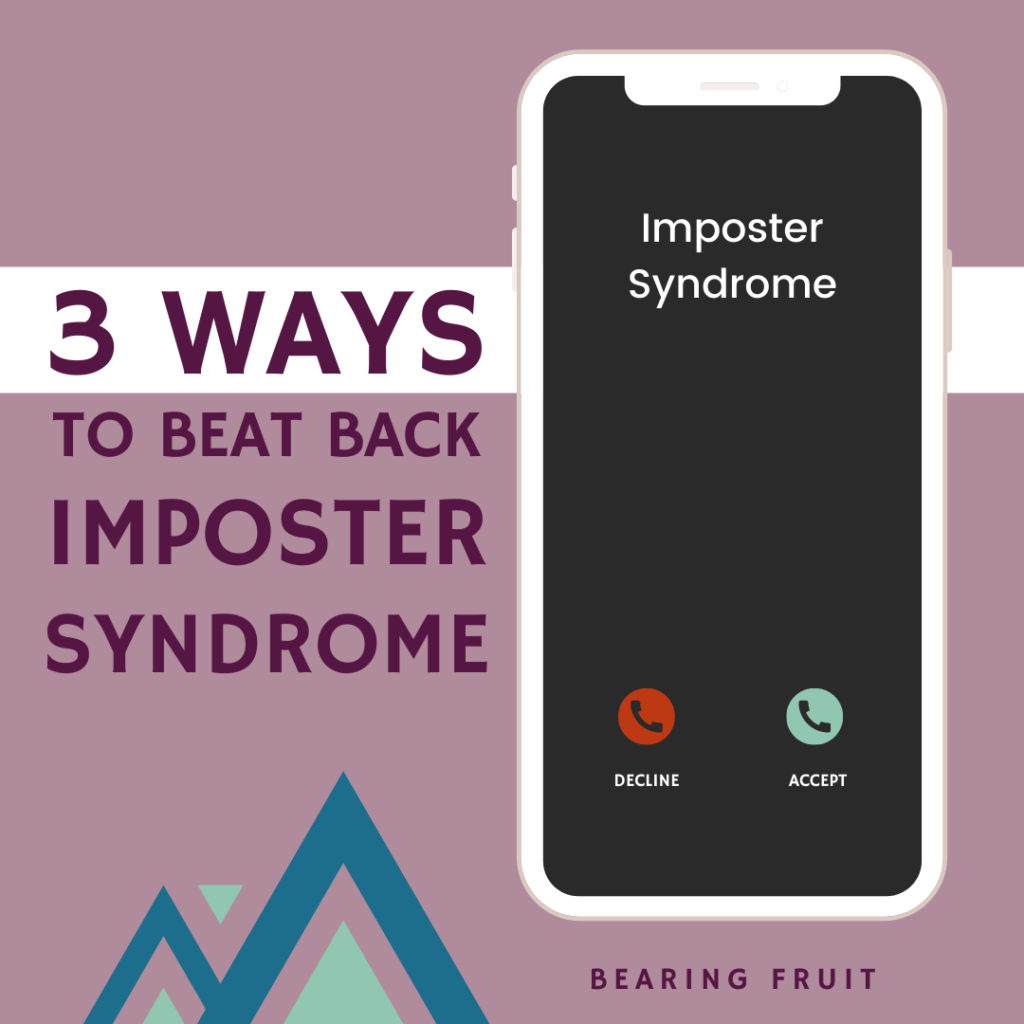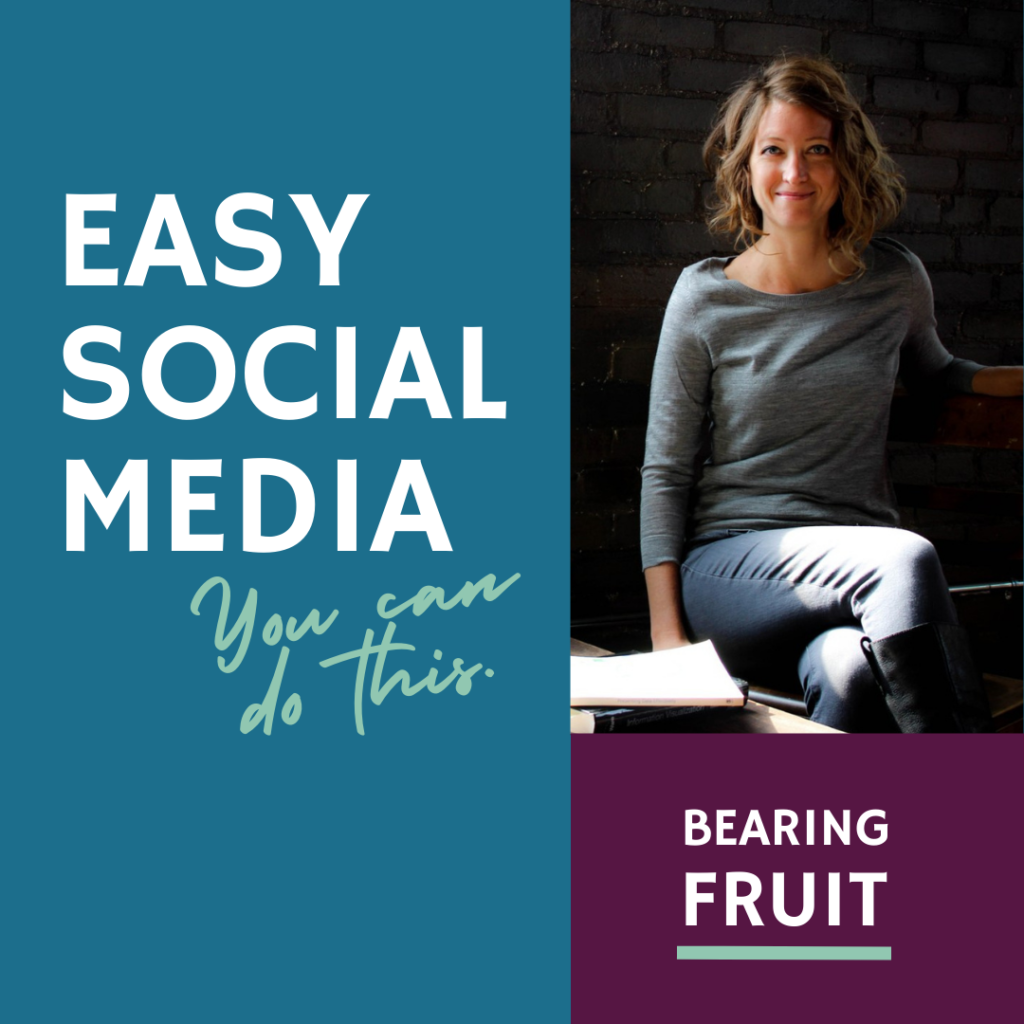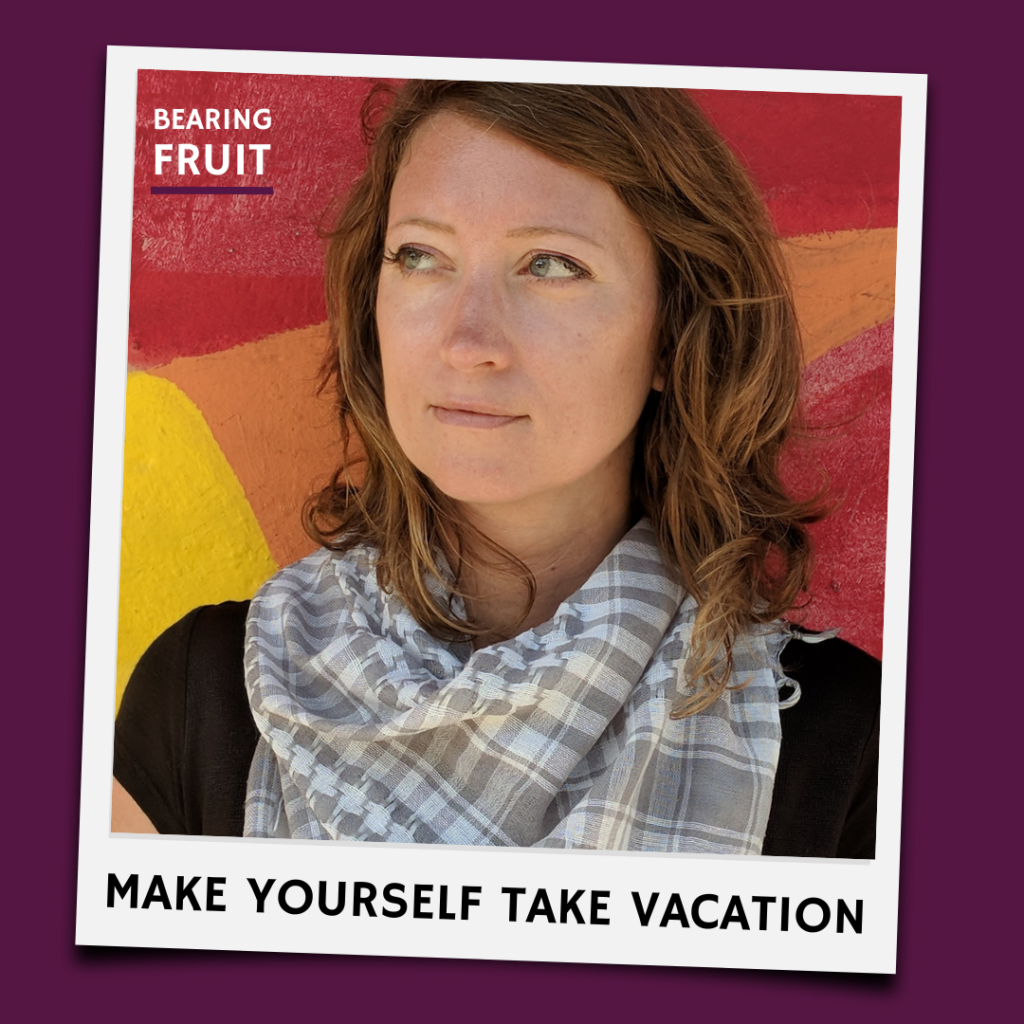Singing into the Ocean
I just made one of my dreams come true. I launched an online course while I was at the beach.
I’ve always wanted to be in such a well-prepared place that I could put some work on auto-pilot while I snorkel with sea turtles and lobsters.
I arrived.
I answered a few emails each day from prospective students who wanted to join the Data Visualization Academy. But mostly I drank mojitos.
You’d think it’d be all sunshine and starfish but I have had a teenager in tow, who was being very teenager-y. Why is it so hoooooooot? Why is there sand evvvvvverywhere?
My teen was (rightfully) irritated after an unexpectedly long and sweaty hike back from an unexpectedly amazing tide pool. How looooooong until dinner?
When I told him it would be another 90 minutes, his mood turned so sour, it would have aged me 10 years had we been making direct eye contact.
We diverted to a beachside bar and ordered pineapple juice (with added rum and mint in mine) to see if that would turn that tide.
It didn’t.
But while we sat on the top of a picnic table, watching the sun set into the waves, I spotted this week’s hero.
Just as the sky was starting to turn colors, this guy at the bar faced the water, turned up the tunes playing in his headphones, and danced in the sand.
He sang along, too – loud enough for us to hear him, even over the ocean waves. I couldn’t tell what song he was singing but let me tell you right now this man was doing something holy.
Even though signs from Kohl’s like “Dance like nobody’s watching” makes my guts cringe, that’s exactly what was happening here.
He didn’t seem to care about the cranky teenager brooding nearby.
He didn’t pay attention to the two young girls ripping around the courtyard threatening to put everyone in their Tik Tok video.
He didn’t get distracted by the cook and the bartender, who were married and in a screaming match.
Dude put on his red LED headphones and jammed.
Just him and the music and the sky and the water.
At the risk of romanticizing what was going on in this guy’s head, let me stop here and pull out the lesson for the rest of us.
Prepare for In the Zone time.
You know The Zone. It’s when you’re in that coveted state of flow, where it’s just you and your task/project/focus. Where time passes without you knowing it. That’s The Zone I’m talking about.
It doesn’t just happen by chance. Being In the Zone is a result of how you set up your circumstances.
Like, this guy needed to be at the beach. At sunset. With his headphones. And his playlist. He wouldn’t be singing into the ocean without those ingredients. He came ready.
What circumstances do you need to prepare for your In the Zone time?
For me, I need my mornings. After a cup of coffee and a meditation. With my phone on silent and my social media tabs closed. That’s when I’m at my best.
Because I know that about myself, I don’t schedule meetings in the mornings. I protect the time when circumstances are most favorable for being In the Zone. What takes me a half hour when I’m In the Zone would take me 90 minutes in the afternoon.
What works for you? Write to me and tell me.
I also gotta point out:
he didn’t over-engineer the circumstances. He didn’t demand to be surrounded by silence and good vibes. He didn’t sweat a lot of what could have been distractions.
It’s really easy to find reasons (excuses) for why you can’t just get to work. This is why people have the most beautifully decorated home offices but generate zero income. Time to stop shopping for succulents and publish that website.
We tend to prop up a goal of perfection so that we look productive without actually producing. Actually producing means that people will see our work. And they might point out our flaws.
Next time I find myself lacking the courage to do something I know I want to do because I’m too scared of what my peers on social media will think, I’m going to recall Jam Man on the beach in St Croix, doing his thing.
Just Close Shop
Jeremy Chard handles my highlights. While he’s waiting for the foils to hide my grays, he checks his phone and reads off: “I have to move our haircut scheduled for tomorrow.”
“Ugh!” he says, “Another one.”
Another cancellation?
Yep. His fourth one so far that week.
It was only Monday.
Not just any Monday – the Monday of Thanksgiving week.
Jeremy’s week is going to be potholed.
Like when you only have 15 minutes between Zoom meetings. There’s not much you can productively do in that time.
The solution is to just close shop the week of Thanksgiving.
Once you see the pattern of cancellations, that’s your clue of what’s to come next year too. Wonderful! Use it as feedback and plan around it.
When I started my first business I got high from every email asking to be my client. So much so that when Thanksgiving hit and my supply of new clients went dry, I would go through withdrawals and cry to my father that nobody loved me. It took me a few years to recognize that, in my industry, it’s a pattern.
It’s as quiet as the moon from Thanksgiving until New Years Day.
Budgets have run out for the year and everyone is distracted by fellowship and family (and consumerism).
Now I know to plan around it. I don’t rely on December to contribute to my annual income goals. Heck, now *I* start closing up shop around Thanksgiving.
Plan around it.
Don’t expect responses from potential clients. Don’t try to launch a survey. This is not the time to launch a new course or a book.
In Europe, somehow everyone vacations for all of August (I’m jealous). When I was preparing for a September workshop and needed input from clients in August, I got nothing but out of office replies. Now I know better.
If you can’t NOT work (which we can address in another letter), plan to use this quiet time to generate future work.
Hatch your next marketing campaign.
Reflect on your year’s successes and what you want to accomplish next.
Draft up 2 months of your email newsletter content.
You can still be productive – if you need that – while closing shop to clients, who are already closed themselves.
Plus you get to avoid the awkwardness next time you see a client who was part of Cancellation Week. No need to try to hide the hint of resentment in your voice or enact revenge by letting a gray stick out.
What periods are quiet as a moon in your industry? Write back and tell me when it’s quiet and what you’ll do in that time.
Listen to this.
The largest obstacles you face in growing a business live in your head. You accept thought patterns and limiting beliefs as Absolute Truths and Very Good Questions.
And chances are, you aren’t even doing this on purpose. More than likely, you’ve inherited these beliefs from people around you who think success is “for those other people” and a society that says “not you.”
Let’s rewire some of those circuits and get your head in the game.
Think of this as a curated playlist from me to you. A mixtape for your mindset.
Your responses to my questions in previous newsletters have been the muse for this mindset mix.
Jay Acunzo – Maker Monsters
I got this email from one of yall: “I’d like to ditch [my current job], but I’m daunted by the notion of having to run my own business.” Sound familiar? While there’s a LOT packed into that statement, I detect a good dose of “I’m not sure I’m good enough to pull this off.”
My friend, Maker Monsters are the mean, nagging questions in your head that really don’t have an answer so they never show themselves out. Their ongoing presence actually clouds up your ability to just think and work and be creative, unburdened.
Jay has three different episodes on Maker Monsters (eps 161, 167, & 170) where he interviews a wide range of relatable creatives about the gremlins in their heads and how we make friends with them in order to get back to the good work.
Rachel Rodgers – Boo, You Need Boundaries
I hear this statement a lot, especially from women: “I’ve been running my business for 4 years and I’m ready to scale but I don’t know how because I’m already overworked and stressed out.”
There’s no one better than Rachel Rodgers at shifting your mindset from Broke Boo habits to Rich Boo habits. While her whole podcast is full of hits, this episode is actually her reading chapter 4 of her book.
And, ultimately, be good to yourself and read her whole book. If you think that money makes you evil and empires are for colonizers, this book is one loving therapy session. She addresses money mindset issues that get baked into our gray matter and how to reframe “rich.”
Jereshia Said – How To Overcome Your Fear of Success
A student once said to me, “I think I might be fighting growing.” <mind blown> What a huge insight! If you find yourself procrastinating on the things that will actually grow your business, you might have an unacknowledged fear of success.
For those of us who grew up eating SPAM for dinner like I did (not because you liked it, but because it was cheap), success can be awkward.
And we can do some real weird self-sabotage. Like, for years. Without realizing that we’re getting in our own way.
Because (1) we’ve got some deep rooted belief systems to re-wire and (2) we’ve generally lacked role models of how to be successful and sane.
Jereshia Hawk peers right into your soul in this episode and talks you through to the other side.
Hidden Brain – The Psychology of Self Doubt
I’ve heard you say, “I have so many things I want to do but I’m a Jill of all trades – not sure I’m actually good enough at any of these to make a living at it.” Sweetheart, recognizing your value is hard work made even harder with self dout.
Shankar Vedantam’s podcast is a classic but this episode with psychologist Kevin Cokley is an absolute must listen. Dr. Cokley studies the make up of self doubt aka imposter syndrome. And how everyone has it – even Michelle Obama.
But more than just feeling like you aren’t alone, Dr. Cokley shows you how to make self doubt an ally. This is the podcast to replay when you’re having a bad mental health moment.
Jay Shetty – Eliminating Self Doubt
“Stephanie, I’m not sure how to reach new customers. I feel stuck.”
“Ok, let me send you a strategy for getting new referrals.”
<sends strategy>
“Stephanie, I’m not comfortable with any of these ideas.”
Your brain is designed to keep you alive. Which often means taking as few risks as possible and conserving all atoms of energy. And that’s going to prevent you from trying new things and living a life you’ve dreamed about. This episode is about how to get your brain on board.
In this episode, Jay interviews Mel Robbins, a popular motivational speaker. They talk about how to become kinder to yourself. How the only person who can convince you to be happy is the one who stares at you in the mirror every morning. The real work has to happen internally.
It takes a lot of love to uproot those mental blocks. So don’t be hard on yourself for holding onto bad thoughts. Be compassionate. This journey isn’t easy but you aren’t alone. Listen to the words in this mixtape and rewrite your internal script.
Hear one more thing from me: The risk of sending you a playlist is that you’ll stop everything you’re doing and listen. Pause growth – I must learn first.
But that’s not how it actually works. You learn as you do. Which means you should listen to these episodes (likely, more than once) while you continue to grow your business. You can work on your mindset at the same time that you reach out to a new client or update your website.
There’s no such thing as getting ready, then making business dreams happen. Being an entrepreneur is an ongoing process of getting ready.
Figuring Out Your Next Big Move
Back when I was only running a research company, in my pre-dataviz days, I had the can’t-be-ignored sense that my heart just wasn’t fully in it anymore. And I hadn’t even been there very long.
Sure, I was making plenty of money, paying the bills, investing back in my community.
But I had the whisper. THAT whisper. The one that says you can do more.
It’s really annoying, that whisper. Because it doesn’t have good follow through. Like, what’s that more? What should I be doing?
So if you’re trying to figure out your next move and you’ve got the whisper in your ear, here’s my advice.
Spend six months to a year dabbling in some low-stakes spaces.
Pick spaces that seem like possible candidates for your next move, even if you’re only 10% leaning in that direction.
So if you’re looking for a career pivot, any kind of career pivot, you need stints in any place that seems appealing. A younger Stephanie woulda sought out job shadowing or internships in forestry, restaurant management, and journalism.
The goal is to accumulate a crap ton of experience in a wide range of places so you can see what makes your heart sing.
What resonates in your bones.
Plenty of people become millionaires without their heart coming along for the ride. Get this: I know a guy who launched his multi-million dollar empire by choosing it from a list he found on the internet about quick business ideas. He’s pretty dispassionate about the actual product.
But life is exponentially better when you feel like your work aligns with your life’s purpose.
Life is also reallllllly big, which is why it can take some time to play around so broadly that you find where the tuning fork is your pitch.
Read some. Experience more. It’s one thing to read about something in the abstract but you’ve gotta get your feet wet. Travel, if you can.
In her epic graduation speech, Shonda Rhimes says, basically, get off your tushy and do something. You can only dream for so long. You’ve gotta test the waters. Get experience.
At the very least, schedule some informational interviews with people currently in the field. Ask about pain points, victories, growth possibilities, and the ugly stuff no one likes to talk about. And then listen to what, if anything, is resonating in your heart.
You’ve also gotta be good at it.
Listen, I love LOVE the smell of baking bread. I love kneading the dough. I love slicing into the fresh loaf, spreading some butter, and taking that first bite.
However, I suck at baking bread. Trust that I tried several times a week during the darkest times of the pandemic. I just can’t figure it out.
Bread baking is not my next business move.
Better to figure that out before investing my savings into a commercial oven.
So – something you love AND you’re good at. Both. Together.
But there’s more:
The world pays for it.
In your adventures you might find that leading a girl scout troop is makin your heart sing. The kids love you. You’re GOOD at this.

That’s nice. But that job doesn’t pay. It’s a hobby. A cool hobby! But still.
Your next business move has to actually bring in business.
So if you’re zoning in on a potential next step but you aren’t sure people will pay for it yet, here’s what to do:
Talk to potential clients. Get the scoop on whether this is something they’ve ever hired for or see an actual business need for. It’s ok to send someone a $5 coffee shop gift card and ask for 15 minutes on Zoom to get at this.
Don’t try asking if they’d be willing to pay a certain amount. That doesn’t work because people will say yes to seem supportive but when it comes to brass tacks they may not actually buy.
If you want to test the pricing, try putting a pre-launch into the universe. A pre-launch is when you sell your service before it’s fully formed. You’ll say if you buy now (at a lower cost) I’ll share as a build and you’ll have a hand in shaping the offer. If you get traction here, you’ve funded your build. Cool! You can keep testing pricing strategies from there.
Whether you’re looking for a full career pivot or itching to form a new branch of your existing business, you’re taking a big leap into the unknown. What if you hate it? What if no one wants to buy it?
Six to 12 months spent exploring these three areas should tell you which way to go.
And if you love your current job, it’s probably hitting all three of these points.
Well…. is it? Write me back and tell me which it’s hitting and which it isn’t.
Two Phrases Every Entrepreneur Should Know
Would you take a wine recommendation from a teenager? Of course not. People want to partner with someone who has experience.
Which is why the question Tom sent me is so common among those of you considering entrepreneurship: “How much experience would you recommend having before going it on your own doing the consulting route? Do I need to consult beforehand?”
Though it might look like it on the surface, this question is not just for newbies.
Seasoned entrepreneurs who want to expand their empires into new (and perhaps more lucrative) markets run into this same issue.
People pivoting to new fields, despite a decade of experience, face the same fear.
No matter how long you’ve been on the block, you need two key phrases in your entrepreneurial vocabulary:
“In my experience with similar situations, I recommend…”
The purpose of this phrase is to convey confidence to your clientele. You can be trusted. You’ve done this sort of thing before.
All this means is that you need enough experience to say I’ve seen this.
You don’t have to have that experience in the same industry you’re trying to break into right now. In fact, your cross-industry experience is an asset.
You don’t have to have that experience through paid work. Real life grad school projects or free time portfolio development exercises absolutely count here.
But the truth is that even though I’ve been in business for a dozen years and I like to think I’ve seen it all, a client will still surprise me every once in a while. That’s why you need this second key phrase:
“I haven’t run across this yet, but I have some ideas and I’ll do some research and get back to you.”
You don’t need to know e-v-e-r-y-t-h-i-n-g but you do need to have the unwavering faith in yourself that you can figure it out.
Talented entrepreneurs can find the answer even if they don’t have it right now. They’re resourceful. They’re also timely – you’ll get those ideas back to your client within 48 hours.
I’ve seen the experience question hold too many would-be successful entrepreneurs back from starting their empires.
How much industry experience did you have before you launched your business? Click here to tell me in an email. My hunch is that it’ll be a very wide range. The path into entrepreneurship has 1,000 different entry points.
How to Get Sh*t Done
The first rule is getting shit done is to be really choosy about what you do.
You definitely can’t do everything.
At the moment, I’m building two 6 and 7 figure businesses and planning a third. I write two newsletters and stay active on social media. It looks like I’m doing a lot but here’s a list of the things I used to do and let go of to make space for my priorities:
hosting a podcast
participating in any sort of committee work
pro bono work
hosting a webinar series
writing books
my own accounting
worrying about what some big names in my fields think about me
Behind every person who looks like they’re doing it all is a long list of what they aren’t.
And it’s super important to emphasize that while I don’t have a partner at home to make my meals and tend to the children, my kid is a teenager and he pretty much wants nothing to do with me. For the first 13 years of his life I didn’t have the bandwidth to do as much as I can today.
It’s ok to pace yourself.
The second rule is to prioritize your priorities.
Say your priority is to write a book. Cool! You’ll need long, solid, silent blocks of time to write.
This means you might choose the pay-what-you-can silent retreat center for a long week rather than the NOLA Mardi Gras extravaganza your friends are going to.
Even if social connections are one of your priorities. Book writing could fall higher for you, for a short period of time.
I can’t think very far head into the future (sometimes I can’t even think about tomorrow cause I’m so busy dealing with today) so I plan quarterly priorities. That way, I’m not sacrificing something (somewhat) important for too long. There’s always a time to reconsider and readjust.
But for that quarter, your top two or three priorities take precedence over other competing demands or dreams or distractions. When a little devil pops on your shoulder and tells you to ditch the writing and go for margaritas with your bestie, you’ll need to remind yourself that you have a bigger focus right now.
The third rule is to find out what rules you.
You’ll need a system that cues your brain focus on the priorities you’ve elevated. So the trick – and I think this is the biggest key to massive focus and productivity – is to figure out what rules your actions.
For me, it’s my calendar. I do whatever it tells me to do. So I know I can book time on my calendar for book writing and ain’t nuthin gonna pull me away until that window on my calendar is over. And before I get up, I book the next spot on my calendar when I’ll focus on this priority again.
Other people are ruled by their to do list. Those people need to break down their priority into tasks that can be checked off, one by one. When they finish one task, they make a mini to do list of the next things they’ll tackle when they sit back down again.
Some folks are driven by other people’s expectations. That means their motivation to sit down and work, even when they don’t want to, will be stimulated by the fact that others are waiting on them to finish.
Some are ruled by deadlines and can’t really put in the effort until the deadline gets close. Ok. No prob. Set deadlines.
Are any of these resonating with you? Or does something else drive your actions? Write back and let me know.
If none of these seem to rule you, listen to this podcast episode by Jay Shetty on 10 Ways To Get Things Done Even When You Don’t Feel Like It. Maybe you’ll recognize yourself here.
Find out what drives you. Use it to structure your energy around your selected priorities. Set the other stuff aside temporarily. Get sh*t done.
Biting Off More Than You Can Chew
Learning from other people’s mistakes is so much better than making them yourself. But this is one mistake we all make from time to time: We get too ambitious and bite off more than we can chew.
Let me tell you a story that I wish was less icky.
We had a month before the workshop. Usually this is plenty of lead time.
For me, when I conduct my own workshops. Which is 99% of the time.
But every so often, another company who needs a specialist in data visualization will hire me to co-lead a workshop with them.
Collaboration takes six times longer than doing it yourself.
I wish this wasn’t true. I wish the world was ruled less by time and more about the quality of the output.
But the workshop date was already booked by my collaborators with one of their big, household-name clients. I wasn’t in charge.
Even though we had collaborated on the workshop before, during the pandemic my collaborators shifted their platforms from Microsoft to Google. The transition meant our PowerPoint had to be remade in Google Slides.
What’s more, my collaborators updated their brand during that dark time, so the design of every single slide needed to be revised.
Can I add one more wrench into these gears?
The usual suspect I traditionally co-presented with was pulled for another assignment, so they swapped in a well-intentioned substitute who had never seen the content before. No script, no prep, not even a finished slide deck to work from.
Are you feeling uncomfortable yet?
A team of 5-6 of us met for hours each week, trying to get the slides in shape while also customizing the agenda for the client and learning new material. Building the plane as we fly it, as the saying goes.
The closer we got to the workshop date, the more we were saying “we are just going to have to call it good right here” aka we started compromising the level of quality that lived in our hearts because we were up against a deadline.
I hate being in that place.
I’ve seen a version of this go down countless times as ad hoc teams wait until the last minute to pull their conference presentation together.
So, of course, the answer is Start Earlier.
Easier said than done.
One approach I often use: I list out all the tasks that have to be done to complete a project, along with a generous estimate of time needed for each task. (The less experience you have doing similar projects, the more time you should estimate for each task.)
Then I plot the expected end date on my calendar and schedule the tasks backwards from there.
At that point I can usually see, within the context of the rest of the events on my calendar, whether it’s realistic for me to get this project done on time, with the level of quality I want.
I’ve conducted so many workshops at this point in my life that I already know the schedule. It takes me about 2 months, given all of my other life events, to get a workshop together.
This means that way back at the stage where a potential client and I are doing the negotiation dance, I can start managing expectations. If they want a workshop next month, I have a very quick and easy answer.
Because I’ve been there. I’ve bitten off more than I can chew. More than once. The anxiety it gives me isn’t worth the income.
When was the last time you bit off more than you can chew? Did it give you anxiety? Or make you hustle harder? What did you do about it? Write back and let me know.
Nights & Weekends
You know how babies have that really soft spot on their heads for a while? Their skulls aren’t fully formed yet, in order to leave room for their lil baby brains.
Well, let me tell you about a fun piece of Mom Guilt I still carry around.
I was in my master’s program, studying how to be the best teacher in the gd world. I was taking a full course load, as required by the fellowship I’d landed. But I also needed to work for that bill-paying part of life. And I had a fresh tiny babe.
In hindsight, I cannot recommend all three of these things at once.
To this day, I remember trying to get my little dude to stay sleeping in my lap long enough for me to finishing tapping out this essay before I dashed to my evening job.
When I finally took a breather from the writing and looked down at my kiddo, I saw that I’d been jamming the edge of my desk into the soft spot in his skull. Like, there was a dent.
He’s ok. He’s actually great.
The Mom Guilt I carry is a battle scar from working nights and weekends.
As he got older and I was writing a book or starting my first side hustle, my nights and weekends shifted to mornings and nap times.
That’s the thing about starting your own empire – it takes your time and attention.
When I was first hatching the idea of my business, I got advice about how to know when it’s time to quit your day job. There are a dozen ways to answer this question (future newsletter) but my mentor told me “When your full time job is 100% and your side hustle is 80%, you can walk away.”
This advice inherently means you’re working nights and weekends to get your side hustle up to 80%. You’re tucking it in around the edges of the rest of your life. You’re sacrificing something in order to make a dream come true.
It’s exactly what I’ve been doing the past couple months as I prepped Boost & Bloom.
People can successfully function on shortened sleep, a lack of exercise, and no social life. But only for so long. You actually need sleep, exercise, and friends in order to be creative and thoughtful and ambitious. (You know this, but you try to ignore it.)
If you’re still in the mood to receive unsolicited advice, let me gently suggest that you pace your empire-building.
Schedule the time into your calendar and attend like it’s a class you can’t miss.
When you are there, really – mentally and emotionally – be there. Stay focused.
But only go to class a few times a week. Tuesday and Thursday nights, half of Sunday. Something like that.
See your people. Take a walk. You’ll be better CEO for it. You’re in control here, so set it up for sustainability.
So, what’s your schedule? How are you building your site hustle around the rest of your life? Write to me and let me know.
3 Ways to Beat Back Imposter Syndrome
Done is better than perfect.
^ This was my motto ^ during grad school, when I was trying to wrap a dissertation while working a full time job and parenting a toddler.
I pass this new motto to you in hopes it’ll help you manage the #1 killer of dreams: Imposter Syndrome.
Someone sent me this sweethearted question:
“I recently made the decision to go independent, and my question is about how to manage fear of failure and imposter syndrome. I’m excited! But also terrified!”
Welcome to entrepreneurship. These feelings don’t really go away. The trick is to figure out how to manage them.
Strategy 1: Get comfortable.
I mean, everyone has some imposter syndrome. Well…. almost everyone. Those people who don’t? They’re the ones who should.
Say “Hello Imposter Syndrome, my old friend.” Have coffee together. Catch up on old times.
Just don’t let it stop you from actually taking action.
Imposter Syndrome often hangs out with Perfectionism. The reason we feel less than deserving of success or worth is often because we feel like we aren’t good enough yet.
But what actually earns the doctorate is the finished dissertation. What actually gets you in front of people is the social media post. Not the draft you are endlessly tweaking.
Done is better than perfect.
Get ok with “good enough.”
Strategy 2: Record success.
When was the last time you tried something – and it worked? Probably already today.
It doesn’t even have to be anything business related.
Took a gamble on takeout from a new restaurant and discovered a place in your heart for fried goat cheese.
Swiped right and matched.
Tried a new shampoo. Even if it tangled your hair, you tried it and you learned new information about what you’ll never buy again. Awesome! Wisdom! Success!
Keep a record of what you try and what you learn. For a while, even record the supposed small stuff. The documentation is your track record that you are capable of risking failure and surviving.
This evidence builds your confidence.
In fact, write to me with one of these successes right now.
Strategy 3: Start paying attention to your competitors. Or stop.
Your competition is far from perfect. If you look carefully enough, for long enough, you’ll notice a typo in a tweet. Or a client they didn’t win. Or the absence of a strong marketing campaign.
The point is, no one has it all figured out.
People don’t turn a spotlight on their shortcomings but if you study them, you’ll notice that your competitors or role models are just humans also struggling with imposter syndrome.
On the other hand, try muting your competition.
Stop letting them get in your head. That’s intimidating AF. Geez. Be kind to yourself. You don’t have to be like them to grow an amazing business.
In fact, the business model that makes you most comfortable won’t look like anyone else’s.
Cake Bakers
Being an entrepreneur is more trendy than ever. More and more people are looking to make money on their own terms while following their passions and keeping their sanity intact. I’m all about this.
Except, like any trend, entrepreneurship is not for everyone. Come to think of it, neither are Crocs, but that’s a topic for another time.
There’s A LOT that goes into the business side of growing an empire.
And in my experience, the things that should stop people from starting their own businesses usually don’t. The inverse is also true: the things stopping most people are misconceptions that need to be trashed.
So what actually should stop you from becoming an entrepreneur? Well, one of the signs that this game isn’t for you is if you’re really only interested in doing the thing you love all the time.
I call this personality the Cake Baker.
The reality is, opening a bakery doesn’t mean you bake cakes all day. And starting your business doesn’t mean you’ll do the one thing you love doing all day long.
You actually wear all the hats in the business. You get to think strategically about growth. You handle the spreadsheets and budgets, decode the legalese in contracts, manage clients (and their expectations), market your tushy off, the list goes on.
If you’re the right person for the job, you see all of that as an exciting opportunity. Cake Bakers see it as a drag.
Wanna just bake cakes all day? Get a job at someone else’s top tier bakery, Babe.
My First Million
“Quick, take my picture.” I said to my partner. This is what he snapped.
It’s the moment I became a millionaire.
I knew the day would be coming soon and I was expecting the email from my financial planner to drop any second. My partner and I happened to be in San Francisco at the moment, on a little side venture after I led a workshop in Napa Valley, when word came in.
Record scratch – what? I had a workshop in Napa Freakin Valley? I took a “little side jaunt” to San Francisco? I have a financial planner? Who does that??
I had never even dreamed this day would have come.
Back in 2010, when I was so fresh I didn’t even call myself an entrepreneur, I met with an accountant to make sure I wouldn’t go to jail for tax problems.
Dave told me something like “Withhold 23% of your income right now. When you reach six figures, we’ll have to re-adjust because you’ll be in a new tax bracket.”
I literally LOLed. No way would I EVER make six figures.
I made a million the following year.
Before too long, I was paying six figures in taxes. Yes, I pay more in taxes than I used to make as salary in a whole year at my old job.
These days I look back at the photo of this sweet moment, with my complete swagger and San Francisco-styled hair, and I remember thinking “This will be the best year of business I’ll ever have.”
How wrong I was. Million dollar years are the new norm.
See, this is the thing about growing an empire: It’s hard to see exactly where you’re going.
It’s hard to trust that customers will keep coming.
The economy, a pandemic, an injury, and everything could crumple. There are most definitely forces beyond your control.
That lack of control, that uncertainty, can cause so much low-grade (or high-grade) anxiety that it clouds our ability to think clearly and creatively.
Anxiety gets us listening to so many conflicting, external voices that we freeze.
We stop dreaming big. We start making some abrupt, erratic choices. We wonder whether we should look for a salaried job.
Listen, I never know what my income will look like in 8 months. It’s been that way for 13 years now. At some point in there, I just had to trust that things would work out, because history was showing me that they kept working out.
The sooner you can get comfortable with uncertainty, the more you can stay focused on your work.
My advice is not to relax. My advice is to channel that energy into the #1 trait you need to get to your first million: Absolute faith in yourself that you will figure it out.
You will figure out how to market yourself to bigger, better clients.
You will figure out if, how, and when to hire who in order to increase your business capacity and gross income.
That might mean getting some advice and, if that’s the case, check out my online course, Boost & Bloom. Enrollment opens February 1.
We may not be able to see what’s coming down the road. We may not be able to predict the day we’ll get the email from the financial planner with the million dollar news. But we can trust ourselves that we’ll figure out the very next step to get there.
If you look carefully at your life, I’m sure you’ll find places where you trusted yourself to figure it out. Write back and tell me about it.
Easy Social Media
Why is social media so freaking scary? Oh yeah, because people on the internet can be real jerks.
So much so that a lot of folks are pre-intimidated. Like, too afraid to even put anything out there in case a jerk happens to come along.
I just heard Glennon Doyle say that waiting for jerks on social media is like watching a jack-in-the-box.
Surprise jerks suck. For sure. So we let our fear of them keep us from using social media to be in community and help others with what we know.
We do nothing.
The cost of doing nothing is expensive. Social media is one of the key places future customers are going to find out about you and make a decision to listen to your advice. Creating that relationship builds trust and eventually turns some of those people into paying clients.
Even if you can nod your head along to everything I’ve been saying so far, I still don’t see you tweeting, Honey.
Like, even if you know you need to be on social and you are able to confront the fear of offending someone or saying the wrong thing, you still don’t know WHAT to post. Coming up with ideas for content can be hard.
So let’s talk about easy social media.
Start with a post a day, during the week.
That’s just 5 posts to write in a week. You can do this.
Try structuring your weekly posts in a pattern. Here’s an example:
Monday – promote someone else’s cool work
Tuesday – quick tip about my main service (should be educational in and of itself)
Wednesday – pose a question related to my services
Thursday – a light brag about a client win
Friday – cute cat or kid photo (Fridays are good for something casual)
A pattern structure helps you generate ideas for your posts.
And bonus: It creates a balance so you aren’t ONLY promoting other people’s work or ONLY ever talking about your services. You are a real person with a real cute dog.
No one else is paying enough attention to recognize or predict your pattern. Stay chill, ok?
Sit down on Friday afternoon and think up next week’s posts. Make a calendar for yourself of your upcoming posts so that if you come up with an extra (and you will – you’ll get good at this) you can queue it up for the week after.
At first, planning out next week’s posts might take you an hour. As you get into the routine, you’ll get faster and faster.
Social media doesn’t have to be scary. Or a giant time suck.
We’ll talk so much more about where to put your social media energy in Boost & Bloom, the online course for entrepreneurs reaching for seven figures. Enrollment opens February 1. I’m still tweaking the webpage with details but since we’re friends you can get a sneak peek and sign up for the VIP list here.
Once you know what your pattern will be, write to me and let me know, along with a link to your account so I can watch you work your magic.
Make Yourself Take Vacation
This is what my face looks like on vacation.
It isn’t just the culture, nature, and sunshine giving me that glow. It’s that I’m not at work.
Don’t get me wrong. I often send tweets with #ILoveMyJob because all of my work is deeply fulfilling.
But it’s also exhausting.
Caring deeply about something (anything) often means we put in extra time. We get up early and steal time from the weekend to create its infrastructure. It takes up part of our brain space even when we’re playing with our kids.
There’s a reason clergy and academics take sabbaticals.
Their traditions recognize that we need deep rest from mental work.
Yet Hustle Culture makes it seem like if you rest for just an afternoon, you’ll miss your chance at making a million.
Maybe this is just me (but I don’t think so): Even when I’m on vacation, my business has still set up shop in my head, the shop just shrinks temporarily. My empire is still a part of the low key background noise.
When I take a step away from being IN THE WORK, the background processes are still kicking and I end up hearing my own insights loud and clear.
That’s how, on a hike through the rainforest, I got the best idea for a newsletter article.
On a weekend trip to Chicago, I realized I don’t want to take on any more design projects.
I don’t know about you but by Summer 2021 I was in a streak of burnout so bad that I knew I was going to self destruct if I didn’t get a little break.
So my partner and I found a location within driving distance (so we could stay isolated and also because we had teenagers), and rented an AirBNB (again, no contact with others), right on Lake Erie. We hiked and kayaked.
On Day 4 I woke up at 3am with the idea for Evergreen Empire.
The AirBNB was set up as a vacation home for a family with small children. Perfect. I cracked open the art supply tub and pulled out fluorescent note cards.
Me, my coffee, and my new note cards stared out at the dark lake and sketched out the architecture of this new adventure.
When my partner shuffled into the living room at 5am, I said “Babe, I just started a new business.”
I can guarantee that you wouldn’t be reading this newsletter right now had I ignored my signs of burnout and continued to push through. It’s almost like I have to get away in order to do my best work.
It took me 9 years of running my business before I set up an actual out-of-office reply. In my head, I thought, I’ll lose a client if I don’t write back to them immediately.
The pandemic helped me remember that the world needs a little less pressure and a little more grace. Nothing would fall apart if I didn’t respond within 24 hours.
When you build your own empire, you get to be your own boss. So be the best boss in the world. The best boss in the world would make you take vacation.
Now for your moment of truth. Write to me with the last time you took a proper vacation.
Where did you go? The answer could just be “I went to my couch, not computer, for a whole week.” Vacations, especially in a pandemic, don’t have to involve travel. My dear friend Kate commits to a week off per quarter and most of the time, she spends it just hanging around her house, petting her pup, not thinking about work.
Do you recall getting any clarity or insights when you stepped away from the grind for a moment?
Too Many Cooks in the Kitchen
I am not proud to admit this, but I spent $10,000 on 8 weeks of business coaching. The course was pitched for high-earning (that’s me), executive-level (also me) women who were burning out (ahem, me too).
I’d be happy to share that I forked up 10 grand if I had actually learned something that made my life easier and my business run smoother.
Not so much.
I learned that you just need to stop yelling at your husband. And if that doesn’t work, try the keto diet.
Can I just repeat: TEN. FREAKIN. GRAND.
I coulda taken my whole family to the Virgin Islands, first class, five star resort with that kind of money.
I wish I could tell you that this disaster was an isolated incident but the truth is that I’ve spent years consuming business advice. I’m a lifelong learner, I can’t help it.
Trouble is, when I started implementing what I’d learned, I realized everyone’s advice conflicted.
One podcaster said “Don’t worry about the social media algorithms because the algorithms change too much for the every day Jane to keep up with it.”
A blogger wrote “Placate the algorithm gods, that’s the only way your posts will get seen.”
The $10K course instructor told me, specifically, that my struggles with social media were because I am unwilling to give up control over my brand’s voice and that I should pay (another $10K) to someone else to run my social media for me.
The next time I opened Instagram, I froze. All of that advice was duking it out in my head.
I had too many cooks in the kitchen.
It took me a minute to realize that just because someone has a podcast on business doesn’t make them an expert in running a business. Duh, Stephanie. I get so impressed by the glitter sometimes.
In fact, too many business coaches have business experience limited to… being a business coach.
I don’t know about you, but I’d rather learn from someone who has been in the same hot kitchen.
So let me tell you what I did with that conflicting advice: I tried it all. I sautéed every cook’s recipe.
Some stuck to the wall and some ended up as compost. I’ll tell you the good stuff in future newsletters. For now, I’ll pass on one solid, consistent, enduring lesson.
Listen to your audience.
Sounds vague and vanilla, I know. But it really is the secret trick.
In my newsletter, I asked readers to write back with their most pressing business questions. I got soooooo many awesome responses that both broke my heart a bit (y’all are stressin!) and built my heart a lot because I know I can help.
The solution for at least 50% of what you sent me is to listen to your audience.
Don’t know which of your many talents should be the focus of your business? Your audience will tell you which they want the most.
Don’t know how to price yourself? Oh honey, your audience will tell you when you’re too expensive. And they’ll tell you when you’re too cheap.
Don’t know how to find customers? Your audience will tell you where to show up.
I swear, it sounds corny, but this truth is so universal it might become my next tattoo.
I promise to expand on all of these ideas and more in upcoming newsletters.
Until then, let’s make this a potluck. Write to me with the best piece of business advice you’ve heard.
In some ways, consuming every business book out there is just my slightly masochistic hobby. In other ways, I should have been more discerning early on. I would have saved a lot of confusion, time, and money (I’m still pretty sad about that) if I had just chosen wisely about who to listen to.
You know how Brené Brown said, “If you are not in the arena getting your ass kicked on occasion, I am not interested in or open to your feedback.”? That applies here, too. Let’s use our time and energy judiciously.
Do you know someone else who needs to make this mindset shift? Send them the link to this page so they can sign up for my email list.
Building an empire can be a lonely venture. It’s easier (and more fun) to share your journey with someone who has been there before and can tell you what to do next. I’ve got the company you need in my newsletter. See you in your inbox.
Don’t Freelance
“I’m a freelancer” sounds sexy because media imagery involves rich athletes looking to trade teams or courageous journalists helicoptering to the next international assignment. But in reality, saying you freelance is more like packaging a Le Beccherie tiramisu in a Tootsie Roll wrapper.
Don’t be freelancer.
Freelancers trade their hours for money.
This will, inevitably, stretch you. If not today, SOMEDAY, you’ll find yourself wondering how to scale, how to get more hours in the day, how to get to six or seven figures.
If you worked (and billed) 40 hours per week and never took a vacation or sick day, you’d have to charge $480 per hour to reach seven figures in a year.
Trading hours for dollars isn’t the way.
Freelancers are treated like crap.
When organizations do business with an individual freelancer they act differently than they do when the exchange is business-to-business.
They are less respectful of boundaries and more likely to expect you to be available 24/7. They request the draft on Saturday and the final on Monday. They count your hours.
Somehow freelancers are interpreted as part-time, not really fully employed, and therefore available at the ring of a bell.
Don’t freelance. Own a business.
Your business doesn’t have to be any larger than a company of one. This isn’t about breaking ground on a new HQ. It’s simply a very important shift in position.
The position shift happens in your own head.
When shift your mindset to owning a business, you carry yourself differently. You are doing something bigger than yourself. This might seem small but it solidifies your identity in a way that brings extra confidence and maturity
When you represent a business, other companies treat you as an equal partner. I don’t love this fact, but you get more respect.
To shift from a freelancer to a business owner you don’t need to file any new legal paperwork. You just need to shift the words you use to talk about yourself. And your entire concept of who you and your business are. You know – nothing major.
Do you know someone else who needs to make this mindset shift? Send them THIS LINK to get on my email list.



